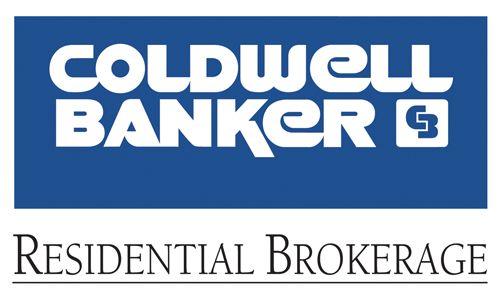IRS 1031 EXCHANGE
1031 Exchanges allow taxpayers DEFER the payment of the CAPITAL GAINS TAX by selling one property and exchanging it with another LIKE-KIND property. This method allows to defer a tax payment liability that normally would have to be paid whenever capital gains from the sale of real estate property exist.
.
CRITERIA for IRS 1031 TAX-DEFERRED EXCHANGE
- The properties must be like-kind.
- To be totally tax free, the acquisition cost of the REPLACEMENT property MUST be EQUAL to OR GREATER than the adjusted sales price of the RELINQUISHED property.
- The total cash equity (equity less selling costs) from the RELINQUISHED property must be reinvested in the REPLACEMENT property (or properties). Any cash NOT reinvested (cash boot) is subject to capital gains tax.
- The REPLACEMENT property must have mortgage debt or new cash added equal to or greater than the mortgage paid off or assumed on the RELINQUISHED property.
- The REPLACEMENT property MUST be IDENTIFIED in 45 DAYS and be settled in 180 DAYS for the IRS 1031 Exchange to be allowed – up to three potential replacement properties may be identified.
- QUALIFIED INTERMEDIARY must be used and notified of the Exchange for IRS 1031 Exchange to be allowed.
- Reverse Exchange is allowed
The RELINQUISHED property and the REPLACEMENT property MUST be used as an INVESTMENT or BUSINESS property by the EXCHANGOR.
However, it is NOT important how the buyer of the RELINQUISHED property plans to use the property (ex. Exchangor used the property as a rental home and buyer plans to use it as a primary residence) and it is NOT important how the REPLACEMENT property is currently used, only that it will be used by EXCHANGOR as an investment or business property (ex. Currently the property is used as a private second home, but the exchangor plans to use it as rental vacation home, or currently used as a primary residence, but exchangor plans to use it as a rental property).
.
The ROLE of QUALIFIED INTERMEDIARY
- QI receives the 45-DAY Identification Notice
- QI gives instructions to the Settlement Agent
- QI establishes a Qualified Escrow Account
- QI delivers Escrow Funds for Settlement
- QI arranges direct Deeding of properties
- QI controls the Escrow Funds – Exchangor CANNOT receive, pledge, borrow, or receive any cash (except taxable cash boot) for the tax free IRS 1031 Exchange to take place.
Theoretically, any person can be QUALIFIED INTERMEDIARY who has NO business relationship with EXCHANGOR. Therefore, exchangor’s real estate agent, broker, attorney, accountant, most family members and others CANNOT act as a qualified intermediary for exchangor.
It is best to use a CERTIFIED EXCHANGE SPECIALIST. I work with Realty Exchange Corporation – contact me for details.
Like-kind investment or business or rental property includes: homes, vacation rentals, land, farms, office condos, warehouses, etc.
To search Washington, D.C. area, Northern Virginia, and Arlington County VA, Fairfax County VA, Loudoun County VA, and Prince William County VA foreclosed properties, bank owned properties, and foreclosures directly from MLS, visit my website: http://www.realtorviviannerutkowski.com/search.shtml
.
NOTE: There is CAPITAL GAIN EXCLUSION on the sale of PRINCIPAL RESIDENCE. The tax exclusion is $250,000 for a single person and $500,000 for a married couple and applies to PROFIT from the sale (profit = sale price less original purchase price less cost of improvements less any costs associated with selling the property). The homeowner must use the house as a principal residence for 2 out of 5 consecutive years. The 2 years do NOT have to be consequtive – contact your accountant for details. Unfortunately, in the post 2006 market most of the sellers are lucky to break even and to avoid a short sale or foreclosure. However, there are many homeowners who purchased their homes long ago and built up equity, or own their home free of mortgage, and do qualify for the capital gains exclusion.
.
You can contact me directly by filling out the Contact Form, texting, email, or toll free number and cell phone:
.
VIVIANNE RUTKOWSKI
REALTOR®, ABR, GRI, SFR, CHRE, CDPE
Licensed in Virginia
KELLER WILLIAMS REALTY
50 Catoctin Circle NE, Suite 101
Leesburg, VA 20176
Toll-Free: 877.765.3799
Mobile: 540.229.5429
Texting: 540-229-5429
E-Fax: 888.864.3374
E-mail: VivianneRutkowski@gmail.com
WEBSITE: www.RealtorVivianneRutkowski.com
WEBSITE: www.RealEstateWithViv.com
BLOG: http://VivianneRutkowski.WordPress.com
.
[NOTE: name pronounced: ViviAnne Rootkovski ]




.
REALTOR, 1031 Exchanges, Listing Agent and Buyer Agent, REOs, Bank Owned Properties, Foreclosures and 1031 Exchanges in Arlington County VA & Arlington VA, Fairfax County VA & Great Falls VA, Chantilly VA, Centreville VA, Herndon VA, Reston VA, Vienna VA, Falls Church VA, Fairfax City VA, Fairfax Station VA, Oakton VA, McLean VA, Burke VA, Annandale VA, Springfield VA, Fauquier County VA & Warrenton VA, Loudoun County VA & Ashburn VA, Aldie VA, Countryside VA, Cascades VA, Lansdowne VA, Hamilton VA, Leesburg VA, Lovettsville VA, Middleburg VA, Sterling VA, Chantilly VA, Great Falls VA, Purcellville VA, Stone Ridge VA, Round Hill VA, Waterford VA, Prince William County VA & Gainesville VA, Haymarket VA, Manassas VA, Triangle VA, Woodbridge VA
.
NOTE: Advertisement Ads which appear in most posts on this Blog are run by WordPress and do NOT necessarily represent the views of Vivianne Rutkowski or Keller Williams Realty. Visitors to this blog are NOT obligated to click the ads to visit this blog.
39.112627
-77.553698
Read Full Post »






You must be logged in to post a comment.